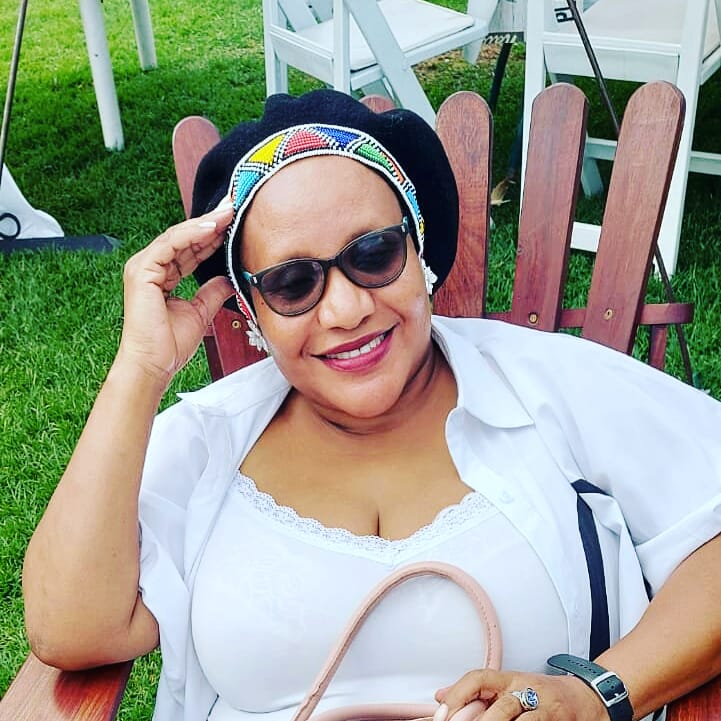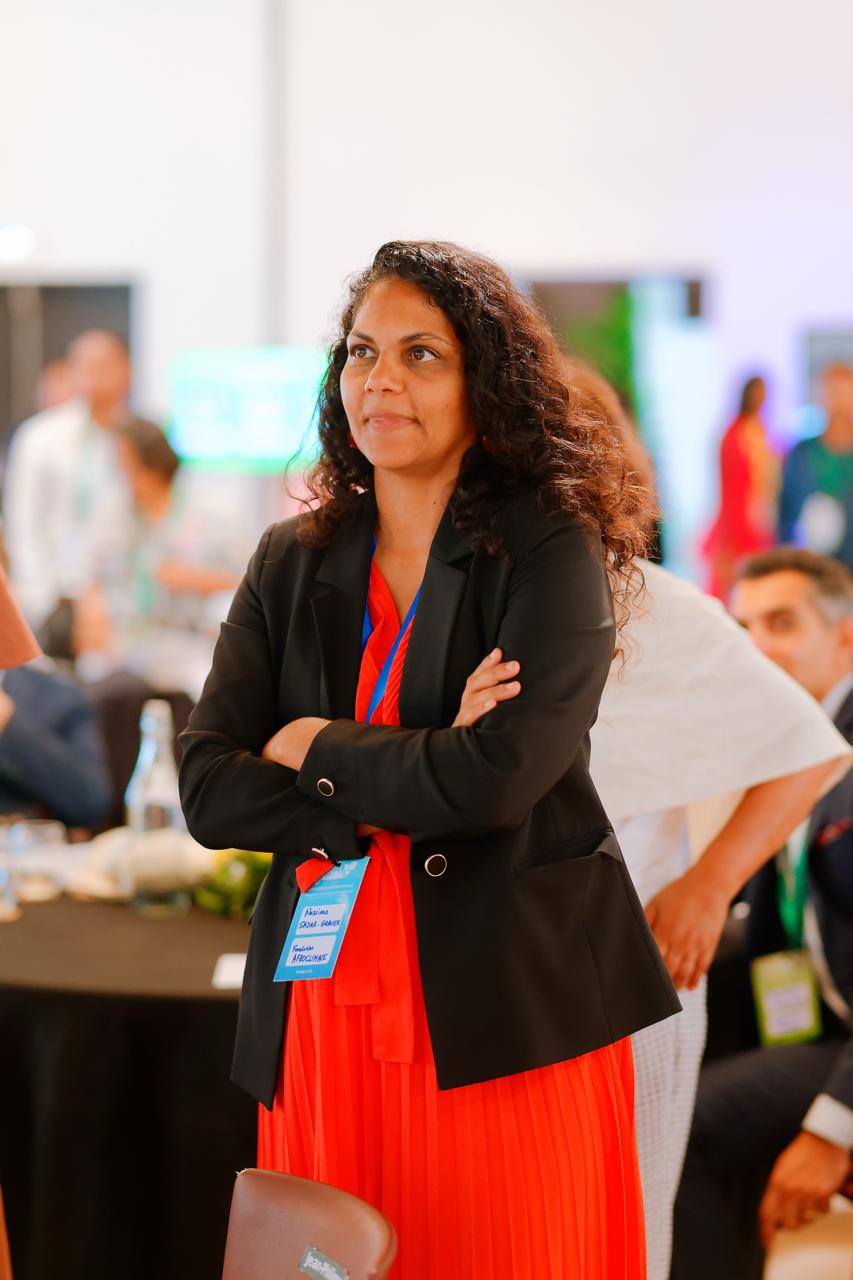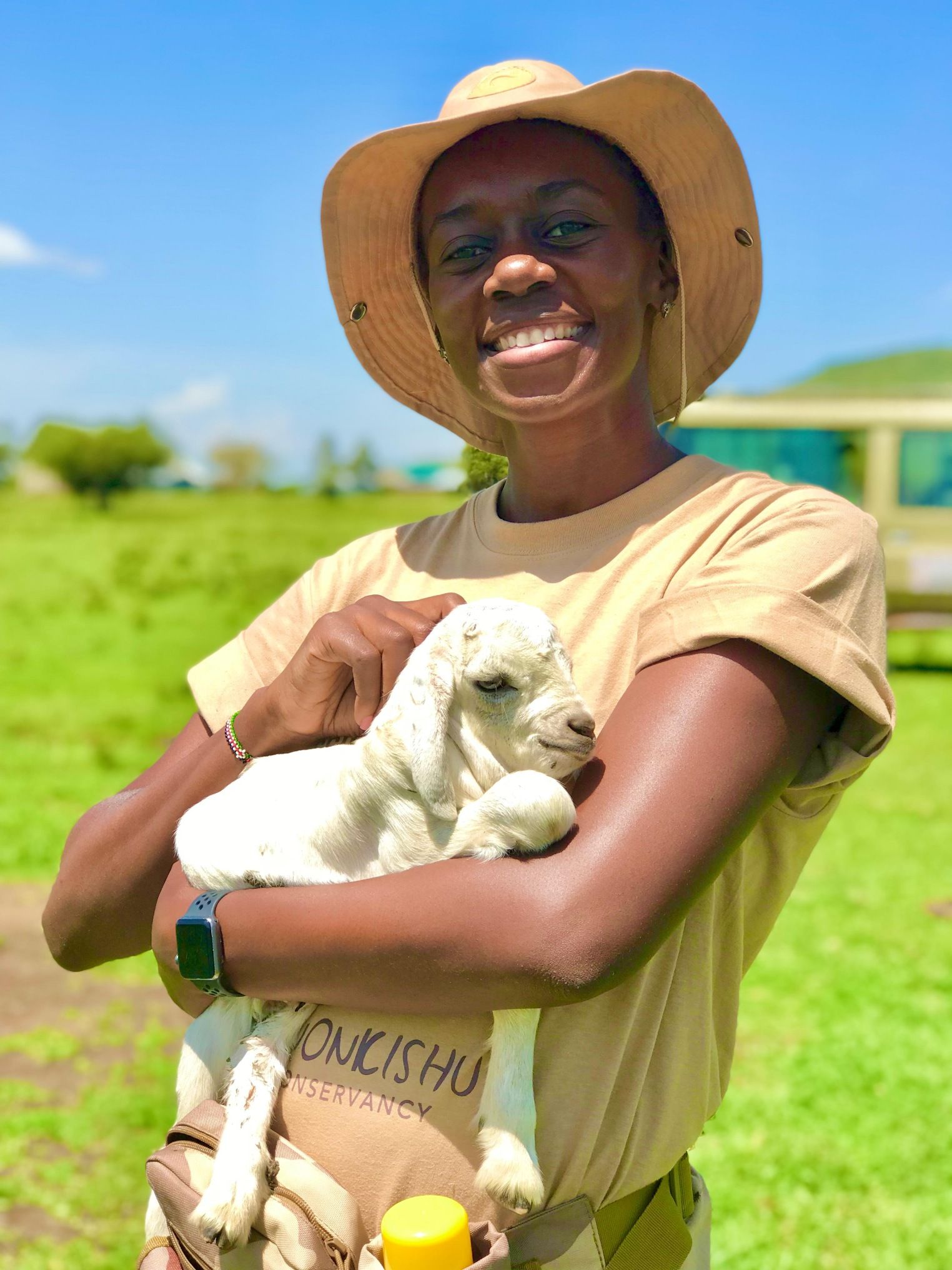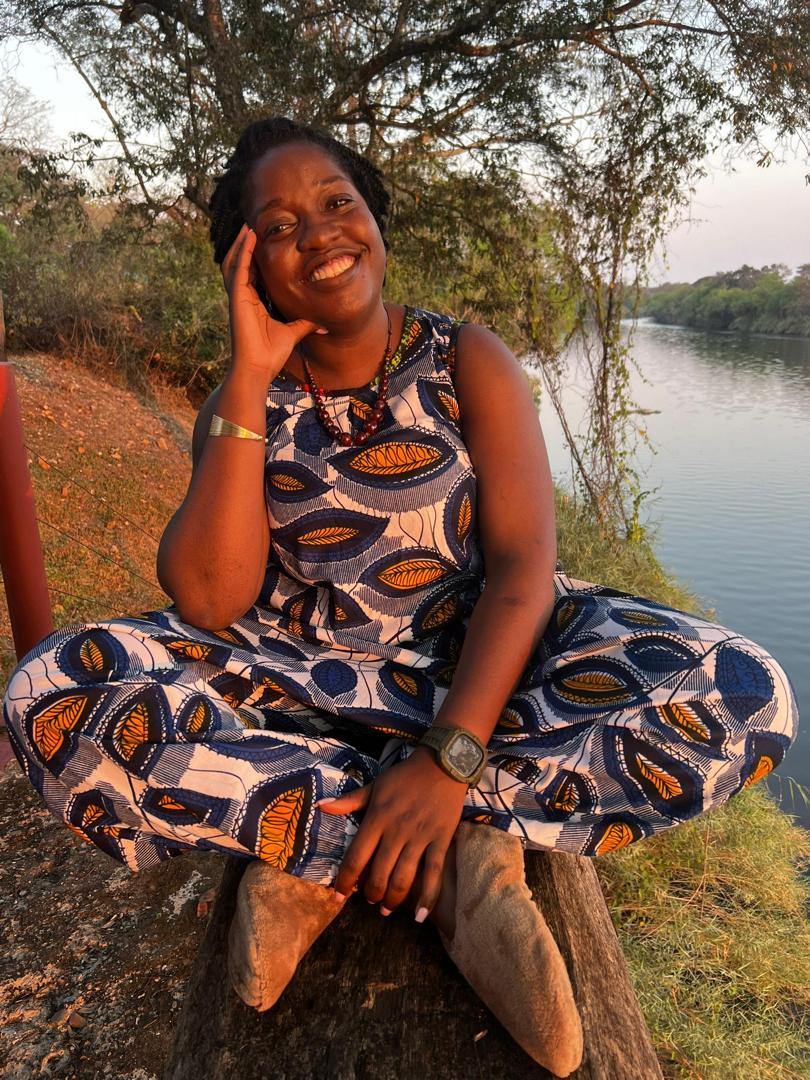If we cannot come up with an agreement that works for all of us, we (Africans) will continue to bear the brunt of the devastating effects of climate change.
Sibongile Mavimbela advocates for environmental sustainability not only because her job requires it but also because it is her passion and calling. She currently serves as the Senior Programme Officer for Environment and Climate Change at Southern African Development Community (SADC).
She handles the collaboration, resource mobilization, and execution of 16 SADC member states from the policy to the action level.
Guided by the motto ‘just us is not justice’, Sibongile believes that the voiceless must be spoken for, and no one should be left behind.
She shares her story with Damaris Agweyu.

Sibo, did you get into the environmental space by design or by default?
At my core, I've always been an environmentalist. I got my BSC in biology and geography and taught both subjects in school. We would take part in these inter-school eco-programmes where our students were tasked with cleaning up and rehabilitating their neighbourhoods and schools. Participating in those programmes cemented my passion for environmentalism. I went on to further my studies in environmental education at Rhodes University.
Eventually, I left teaching and moved on to work for several organisations, all concerning the protection and conservation of our natural resources.
My current job as head of the environment and climate change at SADC entails mobilising resources for African countries to implement sound environmental policies. The work I do is on a more strategic level and I feel that my expertise would have more impact if I worked directly with the affected communities. Policy work is important but the work on the ground is more critical.
As a conservationist, I am not heavy on the wildlife side of things. Don't get me wrong; I love wildlife. Still, I struggle with it because it has been politicised into an economic activity only enjoyed by the elite.
Meaning?
People should not have to pay huge sums of money to enjoy nature. Our animals, forests, mountains, rivers, and oceans all are God-given. They should, therefore, be accessible to everyone. But those who have the money and the means have, regrettably, captured them. It costs an arm and a leg to get into Kruger National Park, for instance! Communities that owned the land were moved out and closed out.
What's worse is, the money that comes to these parks doesn't even go to communities that continue to pay the price. It's a social and environmental injustice that conservationists have yet to adequately address.
I've heard of stories of coastal areas where communities have strong attachments to the sea regarding their cultural and spiritual activities. At some point, somebody decided to buy land on the coast, and fence it off. Those communities no longer have access to the things that matter to them. We must raise young people to address the issues we have failed to address.
Environmental experts on this continent have repeatedly asserted that Africa loses more than most if there is no agreement on climate change. Can you expound on this point?
The world's wealthiest countries have been enriched by processes that led to the high greenhouse gas emissions we currently suffer from. Africa suffers the worst of it in terms of extreme droughts, floods, and rising sea levels.
We suffer because our infrastructure isn't resilient to these disasters. A severe storm in New York will be a bad storm. A similar storm in many parts of Africa will be devastating; people will lose their livelihoods and their lives. Our lifestyles aren't designed to cope with the effects of climate change.
We suffer because we rely on our natural resources for our livelihoods. These natural resources are highly vulnerable to the impacts of climate change, and once they are destroyed, we are also destroyed.
If we cannot come up with an agreement that works for all of us, we (Africans) will continue to bear the brunt of the devastating effects of climate change.
How do we move forward, as a continent?
One, we must be prepared as a people. Currently, we report the statistics after the fact. If our people are lucky, they will be evacuated from a disaster zone. But generally speaking, our state of readiness is lacking. We know drought sets in over time, but we wait until there is a total shortage of food, and start panicking.
All our sectors, from agriculture to transport, must be resilient to the impacts of climate change. Future developments should consider the effects of climate change.
Two, those responsible for 95% of the emissions should take some liability. Their counties are more resilient and prepared; they used our resources to develop to the level of resilience. They now want us to pay the same price towards mitigation. This is unjust. We can't all pay the same price when we have not contributed to the problem equally. That's why we talk about differentiated responsibilities according to the level of affordability — we should pay according to what we qualify to pay and based on what you can afford.
In the same breath, the developed countries shouldn't now tell us to stop developing. They have already developed and messed up the planet in the process. For us, adaptation is more important. We need to adapt our sectors and ensure our people and our environment are safe.
We are not victimizing ourselves or apportioning blame, we are simply trying to negotiate a fair deal that’s good for all of us and good for our planet.
What's your experience as a black woman working in the conservation space in South Africa?
This is definitely a space that white men dominate. I've been on many committees where I was the only black person and the only woman. In one such committee, I was working with the local wetland forum. The participants there were all older white men who owned farms, forests, and irrigation schemes. I was only there because I was the government official, and we needed to regulate their activities. During our meetings, they would switch to Afrikaans, which I can barely understand. It was like I didn’t even exist. At some point, I had to tell them this was an official meeting, and we needed to stick to English.
That experience was challenging, but they had to comply because they needed their projects to be licensed by a government official; and that government official happened to be me, a young black woman.
What lessons have you learnt from such incidences?
I have learned that if you don’t know your story, people will walk all over you. If you come in as an expert, you must then show your expertise. You mustn't allow yourself to be intimated by your femininity or blackness or whatever it is they look down upon. People must see beyond what you present.
I knew the legislation, and stuck to the legal framework — no one would question that. No matter how much they undermine you, they can't undermine the law because they need to abide by it. At the end of it all, one of the guys wanted to partner with me and set up a company. He saw the value in having me on his side, my gender and skin colour notwithstanding.
My takeaway from this was that wherever you find yourself, the important thing is to have knowledge. I worked hard to gain this. Even though I have had to make difficult decisions, I have stuck by them because I base them on facts; you can't argue with facts.
Can you give me an example of when you made a hard decision and stuck by it?
Do you remember in 2010, when South Africa hosted The World Cup?
Yes.
Well, during the construction of the stadiums, I was working for Water Affairs department in Nelspruit, South Africa. I was responsible for making recommendations for licensing activities that would impact the river's flow, water quantity and quality.
Three sites were proposed outside Nelspruit but the chosen site happened to be the wetland area. It was selected because it would be convenient for commuters coming from Mozambique, Eswatini, and Johannesburg. This was a strategic decision based on the road network, with no consideration of the environmental impact. My recommendation was to reject the site. The problem was, deadlines were looming, and the new site would be less convenient for commuters. On top of that, all but the water affairs department had approved this site. Because of my recommendation, our department became a stumbling block for development.
Officials from our head office in Pretoria had to come down. They assessed the site and agreed it was a wetland. But they were also aware of the fact that we were stalling the process. The case went up to the Premier, who apparently asked who I was. I was the lowest level ranking officer. Despite the pressure, I couldn’t cave because this would have insulted my integrity, knowledge, and skills.
In the end, the technical and environmental decision was overruled by the political decision. And guess what, during construction, that stadium flooded 3 or 4 times. They had to construct a dam to suck out the water. Their reasoning was engineering could solve this, but the fact is engineering cannot always bypass nature. Every time it rained, the stadium flooded.
All this is to say that I think it's important to stay true to yourself. The truth always comes out. In conservation and environmental space, there are many instances where we have to make hard decisions. Sometimes they are taken into consideration; many times they are overlooked. But in the end, the truth always comes to light.
Which strategy has worked for you in terms of getting results? Coming at things from a place of gentleness or a place of toughness?
It's depended on the situation. The important thing is truthfulness. I make sure that I come from the point of knowledge, not emotions. I think emotions often drive conservationists, and sometimes to their own detriment. I believe the truth must always prevail. I don't get intimidated easily. I would rather walk away than allow myself to sink into intimidation. I have made many mistakes along the way but staying with facts has always worked for me.
What have you learned from your mistakes?
My mistakes have kept me humble and grounded. I am a human being trying my best, but my best may not always be the best.
How has the WE Africa program transformed you as an individual?
I've learned things that I previously never considered necessary for a leader. Take wellbeing, for instance. I didn't think about it beyond health days and wellness sessions at work. But following the leadership programme, I now know that it's a crucial element of leadership. To be a great leader, I have to take care of myself before taking care of others. I need to be fully conscious of this so as not to be constantly overwhelmed by challenges.
The coaching sessions have also been beneficial on a personal level as I've learned the importance of holding myself responsible and personally accountable for achieving my goals. It has been an incredible journey and I will take the lessons I have learned into my future.
***
This interview is part of a series profiling the stories of the 2021 WE Africa leadership programme fellows, African women in the environmental conservation sector who are showing up with a strong back, soft front, and wild heart.





